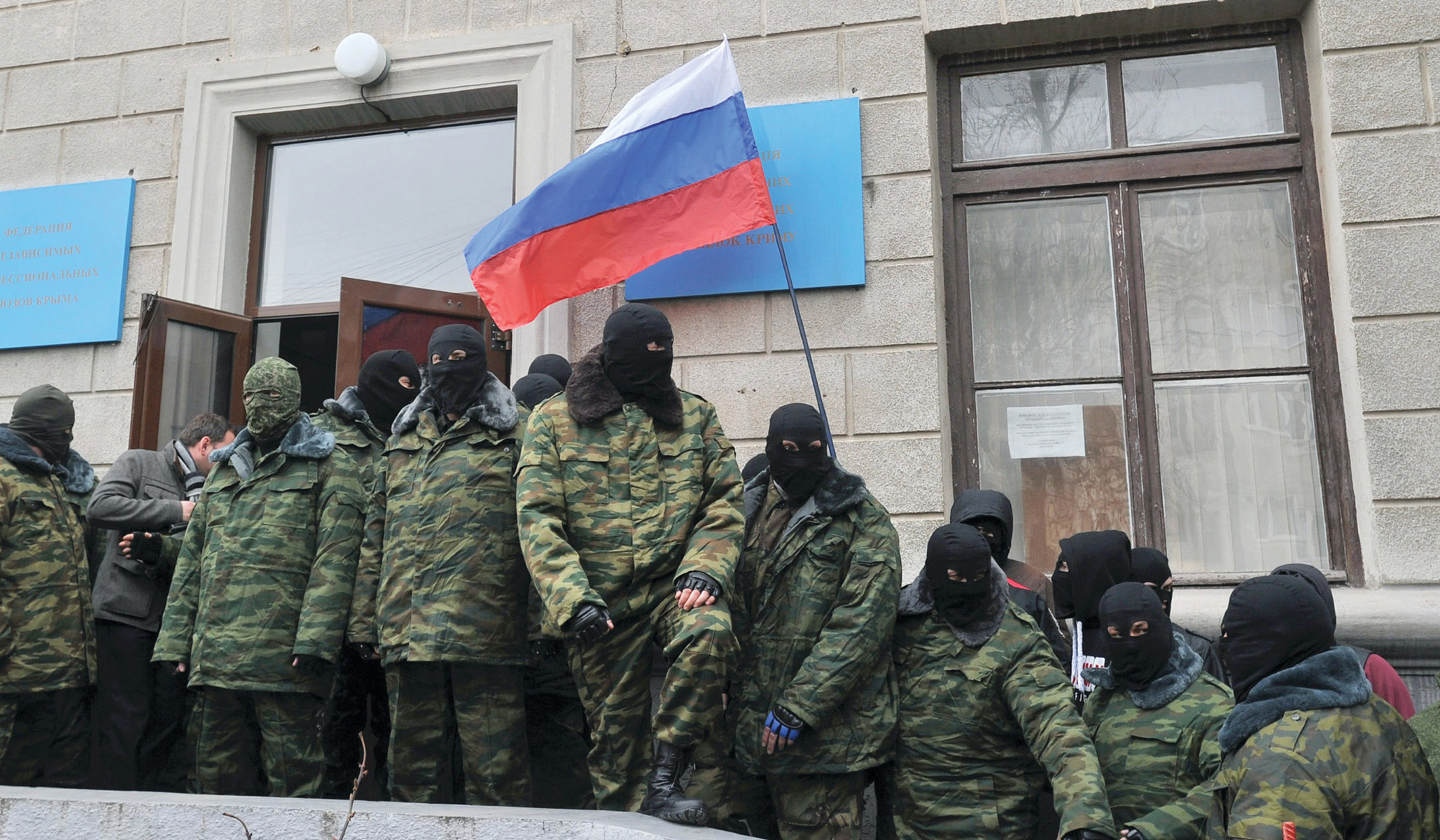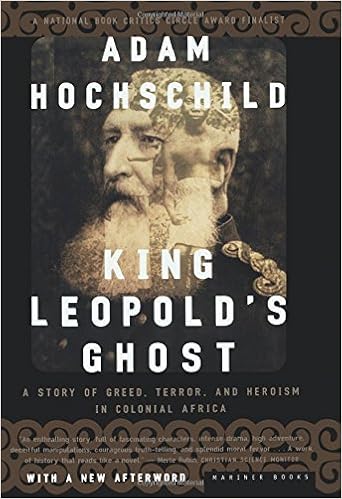The roots of Russian aggression lay in neither NATO enlargement nor ‘hawkish’ US foreign policy, but in Russian revanchism, Brookings analyst Jamie Kirchick writes for the National Review. Insightful weekend reading from a former Penn Kemble fellow at the National Endowment for Democracy.
Thus wrote
four years ago on the website of the same name, echoing (years before 2022) The New Russian Cult of War and Mikhail Khodorkovsky branding Vladimir Putin a bandit at the head of a gang of thugs. Likewise, see the post For
decades, the Kremlin has accused NATO of encircling, threatening,
oppressing Russia… accusing the West of exactly what Putin is doing to
his neighbors, who are not his vassals but countries liberated from
centuries of Russian yoke. (Spasiba for the link, Maggie's Farm).
A number of articles from 2018 go by the title of The Roots of Russian Aggression, but let's take a closer look at the one in National Review by James Kirchick:
As U.S.–Russian relations reach a post–Cold War low, a growing number of observers have concluded that Western behavior, not Russian belligerence, ultimately lies at fault. According to this analysis, the United States and its European allies “humiliated” Russia by enlarging NATO, undertaking military action in the Balkans, extending trade and other forms of soft power to the former Eastern Bloc, and generally not affording Moscow the respect it supposedly deserved as a great (albeit territorially smaller and militarily weaker than it once was) power.
… So stubbornly is this historical narrative of Western arrogance and Russian innocence asserted that it has become impervious to all manner of Russian mischief, no matter how morally egregious or physically destructive. In 2014, after Russian president Vladimir Putin annexed the Crimean peninsula in the first armed seizure of territory on the European continent since World War II, former Soviet premier Mikhail Gorbachev denounced NATO “triumphalism” as the culprit, though the military alliance had expressly chosen not to offer Ukraine a pathway to membership at its 2008 Bucharest summit.
… the Soviets and their allies taken by surprise when national independence movements referenced the [the Helsinki Final Act's] sovereignty provisions to expose the fundamental illegitimacy of the Warsaw Pact, all along a façade for Russian colonialism …
… The subject of NATO’s post–Cold War enlargement, and more specifically the false claim that Western leaders promised their Soviet counterparts that NATO would refrain from incorporating new members, has won credibility of late. Particularly after the Ukraine crisis, Russia’s Western sycophants, seeking to justify Putin’s aggression, trotted out the claim that NATO’s “encircling” of Russia had somehow forced Putin into invading his neighbors. It is remarkable how pervasive this narrative has become.
… As is already known, James Baker, then the secretary of state, promised Gorbachev that NATO would not expand “one inch eastward.” The [left-wing National Security Archive at George Washington University] attempts to embellish this statement by releasing some extraneous once-classified documents. But Baker made that pledge solely in the context of East Germany, a country that, like the Soviet Union, would soon cease to exist. At the time, it was inconceivable that places such as Poland or Czechoslovakia (another state not long for this world), never mind the soon-to-be independent Soviet Baltic republics of Estonia, Latvia, and Lithuania, might one day join NATO.
Russia and its Western apologists can offer no evidence of a promise not to enlarge NATO, because such a promise was never made. Gorbachev should have the final word on this matter: “The topic of ‘NATO expansion’ was not discussed at all, and it wasn’t brought up in those years,” he said in October 2014. “I say this with full responsibility. Not a single Eastern European country raised the issue, not even after the Warsaw Pact ceased to exist in 1991.” Only years later would the prospect of former Warsaw Pact states’ joining NATO become a subject of more than academic discussion, when the alliance offered membership to Hungary, Poland, and the Czech Republic. In 1997, all three joined.
… The newly independent countries of Central and Eastern Europe all desperately wanted to join NATO, and given their histories with Russia [as its former satrapies], it’s not hard to understand why. The practice of invading European neighbors because they stray from the true socialist path — employed by the Russians in Hungary and Czechoslovakia in 1956 and 1968, respectively — is a model of interstate behavior that was supposed to have been forever discredited with the collapse of the Soviet Union. (As events in Georgia in 2008 and Ukraine six years later demonstrate, however, it has unfortunately been revived.)
… As with practically every understanding it signed in the post–Cold War period, Russia later violated this pledge [the Budapest Memorandum with Ukraine, Great Britain, and the United States, which saw Kiev surrender its ample nuclear-weapons stockpile to Moscow in exchange for guarantees of its territorial integrity].
Throughout the 1990s and well into the reign of Vladimir Putin, the United States and its allies went out of their way to draw Russia closer and assuage any fears its government might have had, genuine or contrived, that the Western alliance harbored aggressive designs.
… What provoked the deterioration in relations between Russia and the West, then, was neither NATO enlargement, nor American foreign policy, nor anything else that the West did, but Russian revanchism and revisionism. In 2007, Putin delivered an anti-American tirade at the Munich Security Conference, shocking attendees. Shortly thereafter, Russia launched a cyberattack on tiny Estonia, and the following year it invaded Georgia. The French writer Michel Gurfunkiel identifies Putin’s four major strategic goals as reuniting “all the Russian-speaking peoples under a single nation-state,” reestablishing Russia as “the first among equals” in the “Eurasian community,” weakening Europe and the transatlantic alliance, and restoring Russia as a global power.
… Unlike post-war Germany, which made full amends for its past militarism and atrocities and committed itself to multilateralism and nonviolent approaches to resolving international conflict, Russia never went through a process of Vergangenheitsbewältigung, or “coming to terms with the past.” Perhaps this was an unavoidable consequence of the Cold War’s peaceful end — the Soviet Union, unlike the Third Reich, was not subjected to a traumatic military defeat and occupation by its adversaries. But the consequences of Russia’s not engaging in the sort of critical appraisal of its own history so admirably pursued by post-Holocaust Germany are visible all around us in the modern-day cult of Josef Stalin, the veil of silence surrounding Communist-era crimes, and the popular support among the Russian people for Putin’s military adventures abroad.
… Deprived of the argument that it was nonexistent NATO expansion to Ukraine that “provoked” Russia to invade it, some realists cite the EU’s 2013 offer of a trade-and-aid package to Kiev as having justified the aggression. What this excuse neglects to acknowledge is Putin’s 2004 statement “If Ukraine wants to join the EU and is welcome there, we can only welcome that.” Ten years later, he waged war against the country for trying to do precisely what he had encouraged.
… German chancellor Angela Merkel was said to have remarked that Putin lives in “another world.” He does. It’s a dangerous world where might makes right, one that successive generations of Western statesmen, along with courageous Poles, Czechs, Romanians, and countless others, fought to overcome. The post–Cold War “ideas and assumptions” of America and its allies were not “triumphalist” diktats meant to humiliate or “encircle” Russia by “rubbing its nose” in defeat, but fundamental principles of sovereignty and national self-determination established to avert war on a continent repeatedly plagued by it. Far from being too “triumphalist” in its dealings with Russia, if anything, the West was not triumphalist enough.










